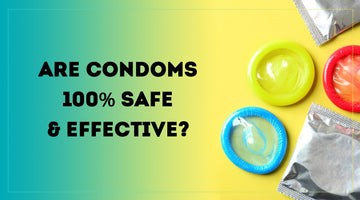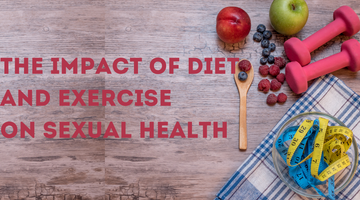
Condoms are extremely effective at preventing both pregnancy and STDs. If you follow the instructions and use them every time you have vaginal, anal, or oral sex, you have a very low chance of becoming pregnant or contracting or transmitting an STD.
No condom can completely prevent pregnancy or sexually transmitted diseases (STDs). However, if you and your partner are having sex, nothing protects you from STDs like a properly used condom. Condoms must always be used to protect against STDs when having sex, even if another method of birth control is used. They must be used correctly and at all times when you have sex. Condoms, even when used properly, do not protect against infections spread from sores on the skin that are not covered by a condom, such as the base of the penis or the scrotum.
How Effective Are Condoms In Preventing Pregnancy?
Condoms are 98% effective at preventing pregnancy if used correctly every time you have sex. Because people aren't perfect, condoms are only about 87% effective in real life, which means that about 13 out of every 100 people who use condoms as their sole method of birth control will become pregnant each year.
The more careful you are about using condoms correctly each time you have sex, the better they will work. However, even if you always use them correctly, there is a small chance that you will become pregnant.
How Can I Improve The Effectiveness Of Condoms?
The best way to ensure that condoms work properly is to use them correctly every time you have vaginal, oral, or anal sex. That means you have to wear it from beginning to end. Before any skin-to-skin genital contact, make sure the condom is properly rolled on your penis. Learn more about how to properly use condoms.
Using a condom correctly entails more than just putting it on the right side out. Additionally, you should:
- Check the expiration date. Condoms that are too old can dry out and crack.
- Choose latex condoms, which are thought to be the most effective in preventing STDs. If one of you is allergic to latex, replace it with polyurethane condoms.
- Condoms should be kept away from heat and light, which can cause them to break.
- When using condoms, only use water-based lubricants. The condom can be broken down by using shortening, lotion, petroleum jelly, or baby oil.
- Open the condom packet with your hands rather than your teeth, and be careful not to tear the condom.
- Roll the condom down until it's completely out if it's inside out, discard it and start with a new one again.
- When finished, withdraw while holding the condom at the base of the penis to keep it from slipping off.
- To catch sperm after ejaculation, use a condom with a reservoir tip. Pinch the top of the condom lightly and place it on top of the penis. This removes trapped air, which can cause a condom to rupture.
- If a condom breaks or falls off and you are concerned about becoming pregnant, contact your doctor or pharmacist to discuss emergency contraception. Furthermore, both partners should be tested for STDs.
While condoms aren't perfect, they are the best way to protect yourself if you're going to have sex. Here are some other tips for using Condoms:
- Using condoms in conjunction with another form of birth control such as the pill, IUD, or shot is an excellent way to both prevent pregnancy and protect against STDs.
- Wearing a condom and using withdrawal "Pulling Out" can help keep sperm out of the vagina and lower the risk of pregnancy.
- You should never use two condoms at the same time, and you should never use a penis condom with an internal condom. Condoms are designed to be used alone, and doubling up increases the risk of tearing. As a result, your best bet is to only use one condom at a time; one condom is sufficient protection if used correctly.
AADAR always promotes safe sex practices to avoid any kind of diseases or unwanted pregnancies. Safe Sex is not a requirement but a responsibility, if any person is mature enough to understand the sexual act then he or she must also understand how important safe sex is and condoms are just one of the types. One should not just be reliable on it and should be well aware of other types of contraceptives too.
We have Health Experts who can easily connect with you and discuss your sexual concerns. You can consult your family doctor first to get the most accurate diagnosis, or you can contact our Health Expert or connect with us at +919867667699.



